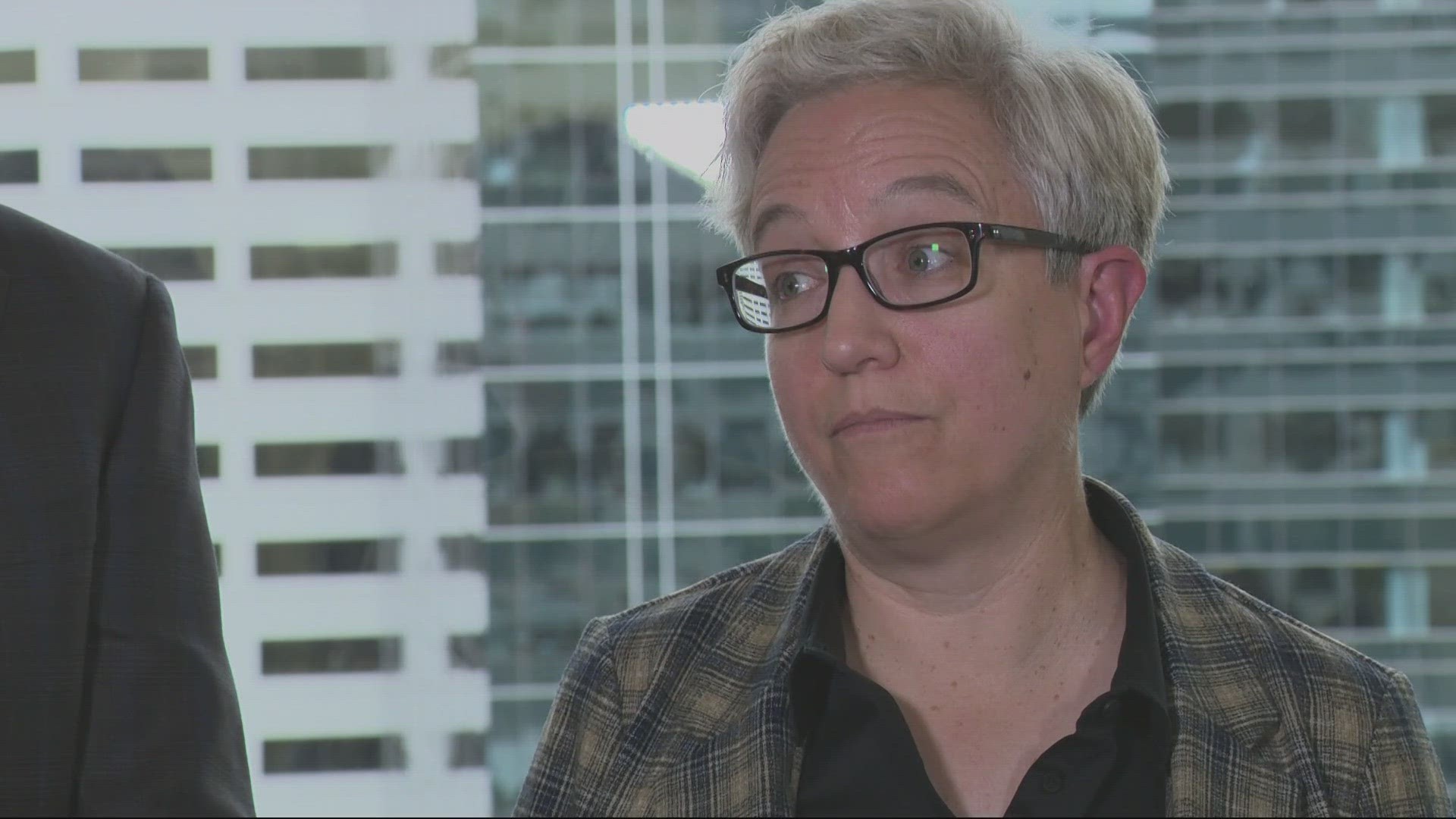PORTLAND, Ore. — Oregon State Police will redouble efforts to crack down on the distribution of fentanyl across the state, Gov. Tina Kotek announced Tuesday at the second meeting of the Portland Central City Task Force that she convened and co-chairs.
According to a statement from the governor's office, OSP will launch several new "strategic enforcement and disruption strategies" throughout Oregon, targeting the powerful synthetic opioid in particular. So far this year, OSP has seized 62 pounds of fentanyl powder and nearly 233,000 pills.
“I want all Oregonians to know that the state is moving forward with several new fentanyl strategic enforcement and disruption strategies,” Governor Kotek said in her statement. “I'm grateful to (OSP) Superintendent Codding and his team for bringing forward an urgent and thoughtful plan. As we work to cut the supply of fentanyl and hold dealers accountable for selling dangerous drugs, I also remain fully committed to expanding access to critical behavioral health services.”
RELATED: 'Possible overdose' leaves 15-month-old girl unconscious, not breathing in Southeast Portland
Codding serves on the Community Safety Committee of Gov. Kotek's task force. Kotek appointed him to lead OSP early this year after taking office.
“The terrible impacts of fentanyl here in Oregon are plain to see,” Codding said. “The Oregon State Police is steadfastly committed to stopping its distribution and increased use in our communities through proactive interdiction and enforcement, and through collaboration with community, public health, education, and public safety partners.”
According to Kotek's office, the OSP crackdown on fentanyl will consist of four initiatives:
- Increasing and reallocating staff to strategic local drug enforcement teams, including local and regional teams.
- Designing and hosting interagency saturation patrols with an emphasis on fentanyl interdiction using teams of narcotic enforcement K-9’s, drug enforcement detectives, and patrol resources.
- Partnering with the DOJ to update and make interdiction training available to our public safety partners to avoid unlawful searches and address potential biases prior to the implementation of enhanced enforcement strategies.
- Extending their High Visibility Enforcement Unit (HVEU) pilot that kicked off this summer, which uses a data driven approach to identifying drug and alcohol impaired drivers who present a danger to public safety.
Kotek's office said that the governor "commends Mayor Ted Wheeler and the Portland City Council" for passing an emergency ordinance to criminalize public drug use. While that ordinance is currently unenforceable due to state law, Kotek's office said that Oregon's substance use problem needs to be urgently addressed in next year's legislative session.
The announcement on Tuesday suggests that Kotek is attempting to grant one of Wheeler's major requests, after a fashion. Before the first meeting of the governor's task force, Wheeler had asked that Kotek immediately assign 96 OSP troopers to Portland and open a branch downtown, among other requests.
“This announcement says something important about our Governor: she is impatient about the right things,” said Dan McMillan, CEO of Portland-based insurance company The Standard and task force co-chair. “We have committed to deliver actionable recommendations from the task force in just three short months. The fact that the state is putting skin in the game this early bodes well for the work ahead.”
As of Tuesday afternoon, it was unclear what other results came from Tuesday's task force meeting. The next full meeting is scheduled for October, but Kotek's office said that each of the task force's committees — Central City Value Proposition, Livable Neighborhoods, Community Safety, Housing and Homelessness, and Taxes for Services — will continue to meet regularly between the full task force meetings.
The task force has been directed to present "actionable recommendations" on how to revitalize Portland's central city at the Oregon Business Summit on December 11.

